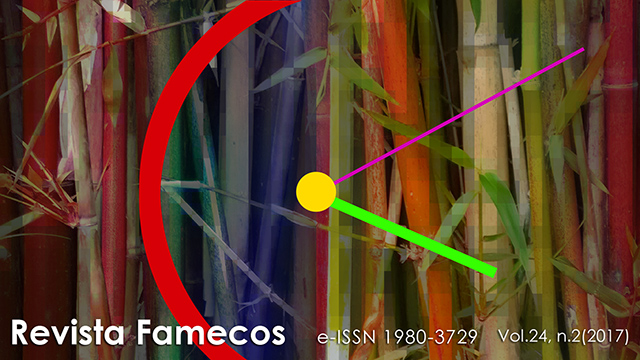Talking to the food: MasterChef and the soliloquy as a privileged access to authenticity
DOI:
https://doi.org/10.15448/1980-3729.2017.2.24523Keywords:
Reality show, Soliloquy, IndexicalsignsAbstract
The article posits an analysis and a historical contextualization of the television franchise of gastronomic competition MasterChef construed as a hybrid of reality show and talent show. Together with the revelation of the culinary competence of the participants (talent), the audience has access to what they are expected to consider to be the authentic emotions of the aspiring chefs (reality), to their intimacy, through the recurrent use in the narrative economy of the program of a way of talking that is unnatural in everyday life, namely, the soliloquy. By revisiting the history of this kind of monologue in literature and drama, we present an attempt to understand what the authors argue is the phenomenon of the authenticity effect in MasterChef. We analyze five variants of the soliloquy in the franchise; they are drawn from episodes of the Brazilian, Argentinian and American editions of the TV show.Downloads
References
ANDACHT, Fernando. El reality show: una perspectiva analítica de la televisión. Buenos Aires: Grupo Editorial Norma, 2003.
ASLAMA, Minna; PANTTI, Mervi. Talking alone: Reality TV, emotions and authenticity. European Journal of Cultural Studies, London, v. 9, n. 2, p. 167-184, 2006.
MARQUIONI, C. Eduardo; OLIVEIRA, Caroline Cavalcanti. Para além da competição: consumindo afetos como cultura material no programa MasterChef (análises e reflexões iniciais). In: Conexão – Comunicação e Cultura, v. 14, n. 28. p. 71-95. Universidade de Caxias do Sul. Caxias do Sul, 2015.
PADRÃO, Ana Paula. Entrevista presencial concedida pela apresentadora da primeira, segunda e terceira temporadas de MasterChef Brasil para Caroline Cavalcanti de Oliveira e Carlos Eduardo Marquioni. São Paulo, 20 set. 2014.
PEIRCE, Charles Sanders. The Collected Papers of C. S. Peirce Vols. I - VIII. HARTSHORNE, Charles; WEISS, Paul; BURKS, Arthur (orgs.). Harvard Mass.: Harvard University Press, 1958.
ROZNOWSKI, Rob. Inner Monologue in Acting. London: Palgrave Macmillan, 2013.
TALCOTT, R. A. The place for personation. Quarterly Journal of Speech, v. 2, n. 2, p. 116-122, 1915. Disponível em: http://dx.doi.org/10.1080/00335631609360528 Acesso em: 4 maio 2016.
TAYLOR, Charles. A secular age. Cambridge: The Belknap Press of Harvard University Press, 2007.
WALLACE, Clare. Introduction. In: TAYLOR, Charles (org.). Monologues: theatre, performance, subjectivity. Prague: Litteraria Pragensia, p. 1-16, 2006.
WILCE, James M.; FENIGSEN, Janina. Introduction: De-essentializing authenticity: A semiotic approach. Semiótica n. 203, p. 137-152, 2015.
WILLIAMS, Raymond. Cultura. São Paulo: Editora Paz e Terra, 2008.
_____. A produção social da escrita. São Paulo: Editora Unesp, 2013.






